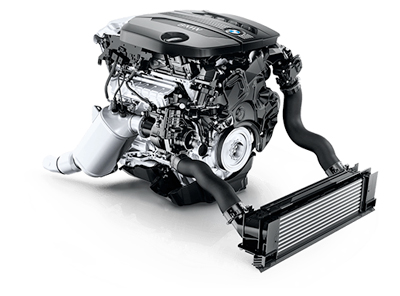The Development of the BMW Engine: A Look Back at Iconic Versions
The Development of the BMW Engine: A Look Back at Iconic Versions
Blog Article
Revealing the Intricacies of Next-Generation Power Units: a Deep Study Advanced Engine Developments and styles
As we stand on the precipice of a brand-new period in transportation, the complexities of next-generation engine styles bid us to check out the cutting-edge technologies and technologies that promise to redefine the driving experience. Delving much deeper into the worlds of discharge control, intelligent engine monitoring systems, and the horizon of power unit growth, we discover ourselves on the cusp of a makeover that assures to improve the landscape of flexibility as we understand it.
Advancement of Engine Materials

The shift in the direction of advanced engine products has additionally enabled designers to create engines with higher power outcomes while keeping gas efficiency standards. The use of lightweight materials reduces the general weight of the engine, leading to improved gas economic climate and reduced exhausts. Furthermore, innovations in materials innovation have actually enabled much better thermal management within engines, leading to enhanced reliability and longevity.
Turbocharging and Supercharging Technologies
How do Turbocharging and Supercharging Technologies transform engine efficiency and effectiveness in contemporary automobiles? Supercharging and turbocharging are innovations that considerably improve engine performance by increasing the quantity of air intake right into the burning chamber. Turbocharging achieves this by making use of a turbine driven by exhaust gases to pressurize the intake air, while turbo charging uses a belt- or chain-driven compressor to accomplish the exact same impact.
These technologies make it possible for smaller, more fuel-efficient engines to generate power equivalent to larger ones, called downsizing. Forcibly more air into the cylinders, turbo charging and turbocharging boost combustion efficiency, leading to increased horse power and torque result without a significant boost in engine size. This brings about better velocity, lugging capability, and total driving performance.
Additionally, supercharging and turbocharging add to enhanced gas efficiency by enabling the usage of smaller sized engines that eat much less gas under regular driving conditions - bmw engine. This combination of improved efficiency and effectiveness has actually made turbocharging and turbo charging essential elements of several modern engine layouts
Exhaust Control and Environmental Impact
With raising global issues concerning air quality and ecological sustainability, the implementation of discharge control innovations in vehicles plays a vital duty in minimizing damaging toxins released right into the environment. Modern automobiles are geared up with advanced exhaust control systems that help lessen the ecological influence of vehicle procedures. Catalytic converters, for circumstances, are made to convert hazardous gases such as carbon monoxide gas, nitrogen oxides, and hydrocarbons right into less unsafe compounds like co2 and water vapor.
Moreover, innovations in engine technology, such as the integration of exhaust gas recirculation systems and discerning catalytic decrease, have actually considerably contributed to decreasing discharges. These innovations work in tandem to optimize combustion effectiveness and reduce the launch of harmful pollutants into the air. In addition, the growth of crossbreed and electric vehicles stands for a crucial action in the direction of minimizing the general ecological footprint of the transportation field.
Intelligent Engine Administration Systems

Additionally, these systems enable automobiles to meet stringent exhausts requirements without endangering performance, giving a much more eco-friendly driving experience. The assimilation of expert system and device understanding abilities in engine management systems continues to push the borders of what is possible, causing try this website further enhancements in efficiency, dependability, and overall car efficiency. bmw engine. As automobile technology breakthroughs, intelligent engine administration systems will certainly play an important duty fit the future of transportation in the direction of an extra effective and lasting instructions
Future Trends in Power Device Development
As smart engine monitoring systems lead the method for enhanced control and optimization in modern cars, future trends in power unit growth are positioned to redefine the landscape of automotive propulsion innovations. These alternate power sources use check these guys out enhanced performance and efficiency while aligning with rigid environmental laws.
Another significant trend is the assimilation of sophisticated materials and producing strategies. Light-weight materials such as carbon fiber and light weight aluminum are being utilized to decrease general vehicle weight, improving gas effectiveness and performance. Additionally, innovations in 3D printing and additive manufacturing are allowing the production of complex engine elements with higher accuracy and longevity.
In addition, expert system and device knowing are playing an important function in enhancing power system efficiency. These modern technologies permit real-time monitoring and adaptive control, causing more efficient and reliable power shipment. Overall, future patterns in power system growth are geared towards efficiency, sustainability, and effectiveness, driving the auto sector towards a new age of propulsion modern technologies.

Conclusion
To conclude, the improvements in engine products, turbocharging, discharge control, and smart management systems have led the way for next-generation power devices. These developments have not just improved efficiency and efficiency yet additionally reduced environmental impact. As technology proceeds to advance, future trends in power device growth are likely to concentrate on more boosting sustainability and enhancing power result. The detailed designs and technologies in contemporary engines display the recurring evolution of auto innovation.
Checking out the progressive developments in engine materials has been critical in boosting the performance and effectiveness of contemporary engines. Over the years, the advancement of engine materials has actually played an essential role in pressing the limits of what engines can achieve.The shift towards advanced engine products has likewise made it possible for engineers to design engines with greater power outcomes while preserving fuel effectiveness criteria.The execution of smart engine management systems in modern-day automobiles has changed the way engines are managed and optimized for performance and effectiveness. By accumulating data in real-time and examining it with sophisticated formulas, smart engine monitoring systems can adjust to driving styles, environmental aspects, and engine wellness to make the most of power output while decreasing fuel intake and exhausts.
Report this page